Croatia is a well-known country for its beach resorts, but few people know that it’s also great for digital nomads. The cost of living in Croatia is low and the internet speeds are fast. You can find coworking spaces to meet other entrepreneurs or work from home with reliable wifi!
Are you considering moving to Croatia? Read this blog post to find out more about what it’s like, how much it costs, and where you should go!
How fast is the Internet speed in Croatia?
Connectivity in Croatia is widely available, in fact, it is at an all-time high. Since Croatia is a primary destination for many tourists from around the globe, most public and private spaces give access to high-speed and reliable WiFi. Depending on the place, you’ll have public WiFi or password-restricted WiFi, mainly bars and restaurants, which you can ask in exchange for any beverage or meal even the cheapest one.
You do not have to worry about internet issues in major cities such as Zagreb, Split, Rijeka, and others. Even when you’ll want to visit the countryside, nearly all hotels, Airbnbs, and restaurants will have WiFi available. It is also possible to find fixed connections through ethernet, but according to Statistica, WiFi and 4G still prevail.
Some travelers may want to use Pocket WiFi in order to guarantee a steady link to the internet, but it represents a small investment, up to $10 per month.
In the same manner, the 4G coverage in Croatia is outstanding. As indicated by Nperf.com, 4G+ is a very common feature in main cities and their vicinity which will allow you for example to have video calls.
It is noteworthy to mention that EU residents can still use their home SIM cards without the need to pay extra fees, although it is still recommended to swap to a local network provider. And the best at that is Hrvatski Telekom (HTMobile), formerly known as T-Mobile.
Lastly, make sure to check the Nperf’s map before booking a room or Airbnb, in case you need a backup option to stay connected.
Croatia Digital Nomad Visa Options
Is there a digital nomad visa in Croatia?
There is no visa presented as a “digital nomad visa“, however, since January 2021, Croatia has allowed non-EU citizens to apply for a visa, more accurately a residence permit, in the form of a “temporary stay’ available for up to 1 year or less and they make it clear on their official embassy website that you can apply for the temporary stay as a digital nomad. See the details on the website of the official Coratian Embassy in the US.
At the end of that period, you’ll need to leave the country for at least 6 months before you can apply for the same visa. You can apply to it online and you’ll find all the required information on this website.
As for EU inhabitants, there are two types of visas. The first one is a short-term residence which is known as the “tourist visa”, available for up to 90 days. The other one is a “temporary residence” which can last as long as 5 years and is based on a handful of factors such as work, vocational, family reunification, and finally life partnership purposes.
What visa digital nomads usually get to visit Croatia?
With all these pieces of information, the rest is entirely up to you. Do you plan to stay for 3 months at the maximum? Or are you comfortable enough to extend the duration of your stay to up to 1 year (non-EU citizens) or more (EU citizens)?
It will also depend on your initial budget and work’s stability but as a rule of thumb, many digital nomads seem to pick a visa that will last for longer than 90 days since Croatia is a very enjoyable country to live in.
Best spots for digital nomads in Croatia?
Being a fairly small country, you’ll find that it is reasonably easy to travel between the principal cities and also smaller ones, using mainly public transportation. On one hand, the appeal of less known cities is obviously less crowded public and private spaces but the same goes for digital nomad communities. On the other hand, spots like Dubrovnik are gonna be filled with tourists all year round but you’ll find more coworking spaces and more activities to do, especially if you like to party. Here’s a list of interesting cities for all kinds of digital nomads:
Dubrovnik
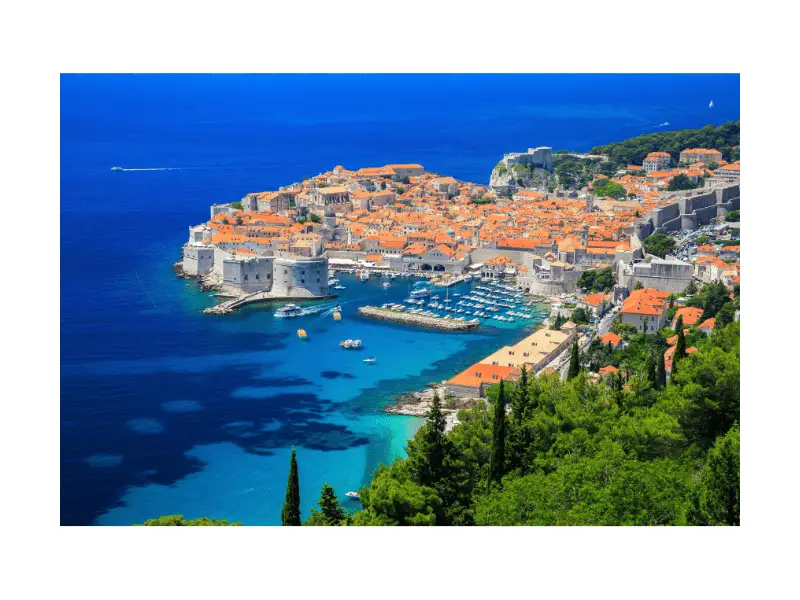
The city that attracts everyone, Dubrovnik, is rather small compared to Zagreb but is highly frequented by tourists. The best thing to do here is to find a hotel or Airbnb outside the heart of the city so that you’ll have a quiet place to work from. Otherwise, hanging in cafés is next but during the main season, expect to see these places crowded.
Split
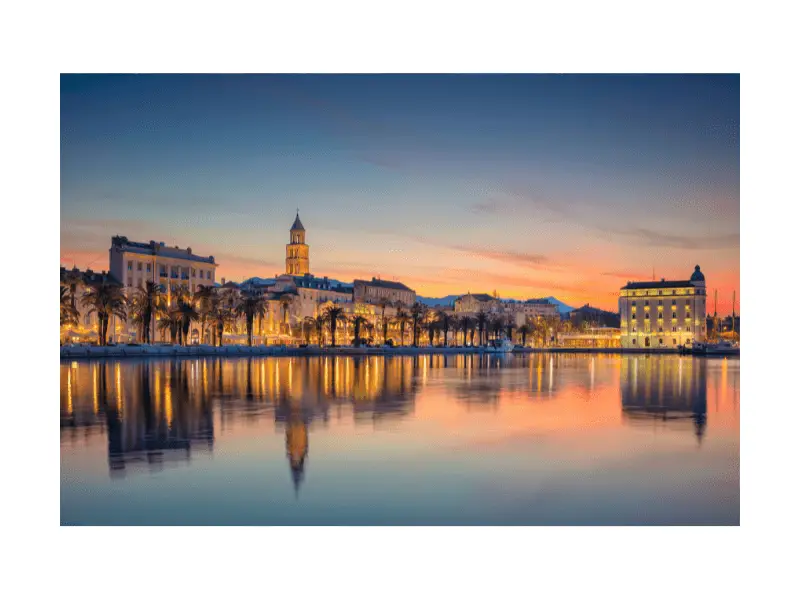
The second-largest city of Croatia can be a lot more pleasant for digital nomads than Dubrovnik especially due to having less crowded areas, and all the necessities to work and participate in social events. You’ll find a handful of coworking spaces but mainly cafés that can offer a steady WiFI connection.
Zagreb
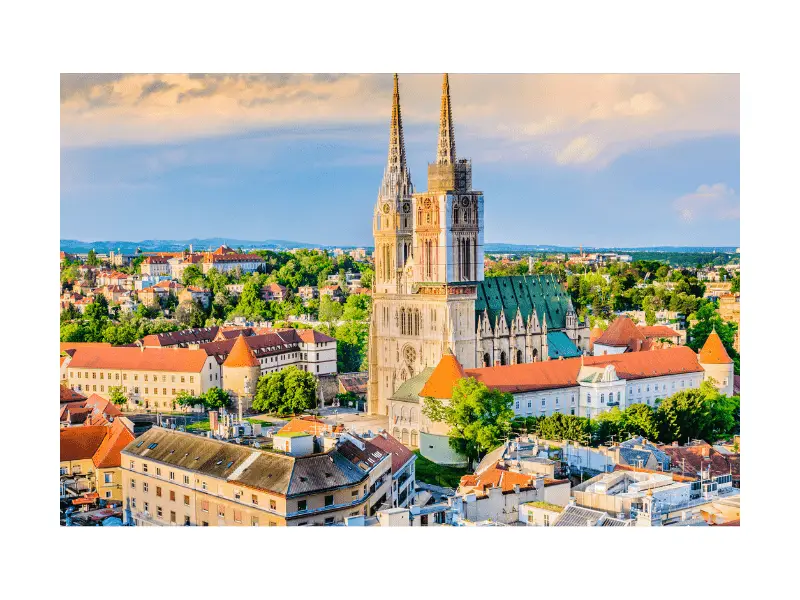
The capital city has seen amazing growth in coworking spaces these last years, such as ImpactHub or BIZkoshnica. This town is a really good choice for entrepreneurs and in general digital nomads who would want stability at their workplace and who are more into the continental city life.
Makarska
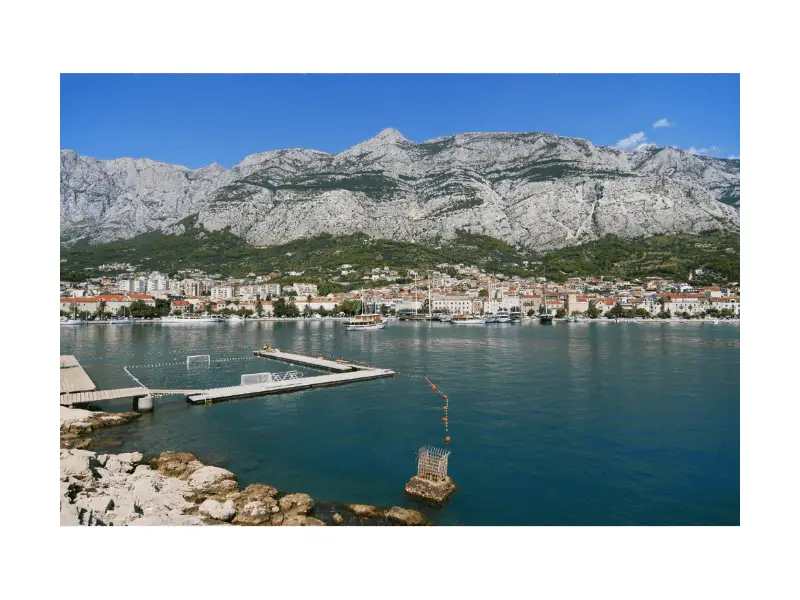
Between Dubrovnik and Split, you’ll find this beautiful striving city named Makarska. Sitting between the Biokovo mountains and the coast of the Adriatic Sea, it is one of many spots that tourists visit during their trip due to the Makarska Riviera. Lots of cafés to work from and also great treks to have!
Zadar
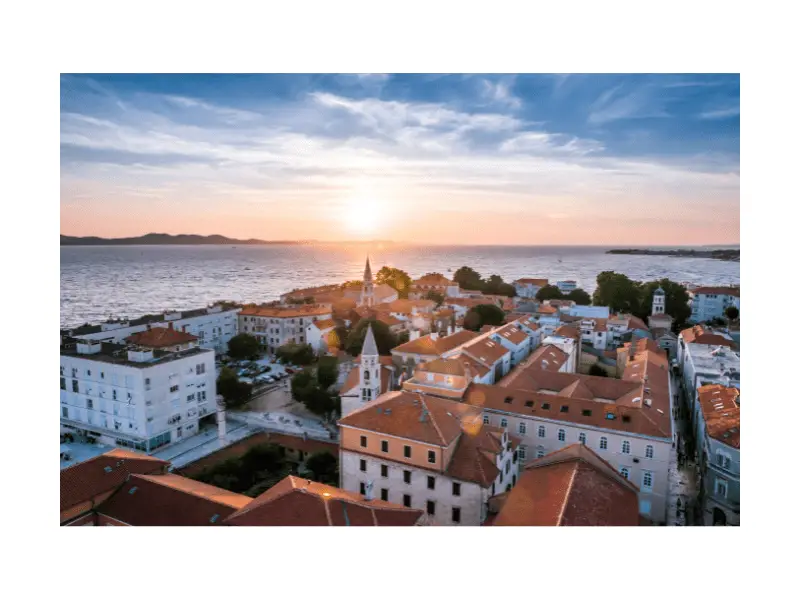
And as my final choice, let’s talk a bit about Zadar but more specifically the Digital Nomad Valley Zadar. This is a brand new project which aims at building a digital nomad community while offering collaborative workspaces, access to a nearby resort, and free WiFi across the valley.
The founder of this project is the admin of the Digital Nomad Facebook Group dedicated to Digital Nomads. Connecting to this group might be very helpful for your researches.
Cost of living in Croatia
While Croatia relies a lot on tourism and any activities that would attract such publics, it can be quite inexpensive to live there. In fact, the average salary is equal to $1200 per month and this is considered as the baseline to be able to live comfortably.
The price for single housing is between $400 to $600 per month, depending on the space and quality.
However, during the summer, the cost of living rises especially when it comes to booking a room in a hotel or Airbnb in any of the cities on the coast of the Adriatic Sea (up to $2500/month!). I strongly recommended avoiding summer if you intend to visit Dubrovnik or Split. But if you have to, try to book a long-term rental in advance.
Eating outside is very affordable, there are a plethora of restaurants and cafés that deliver really good food for $5 to $10. If you’re going to use the full duration of your residence permit, you might want to start grocery shopping. According to NomadicFire, if you’re a single person you will only have to spend around $250 to $300 per month for groceries.
In terms of transportation, most cities have buses. On average and for a single ticket, you will have to play around $2 and there is a monthly plan for ~$60. This can help if you decide to visit another city nearby as well or to plan a hike.
Living in Croatia in a few words
If you’re looking for a new place to call home, Croatia is the perfect destination. The country offers great weather year-round with mild winters and hot summers that are tempered by coastal breezes in most areas of the coast.
You’ll also find it’s quite affordable, especially when compared with other European countries like Italy or France where living expenses can be prohibitively expensive for digital nomads on tight budgets.
Capped off by its close proximity to major cities in Europe such as Paris and Berlin makes Croatia an ideal location if your goal is to work remotely while exploring beautiful landscapes around Europe!
